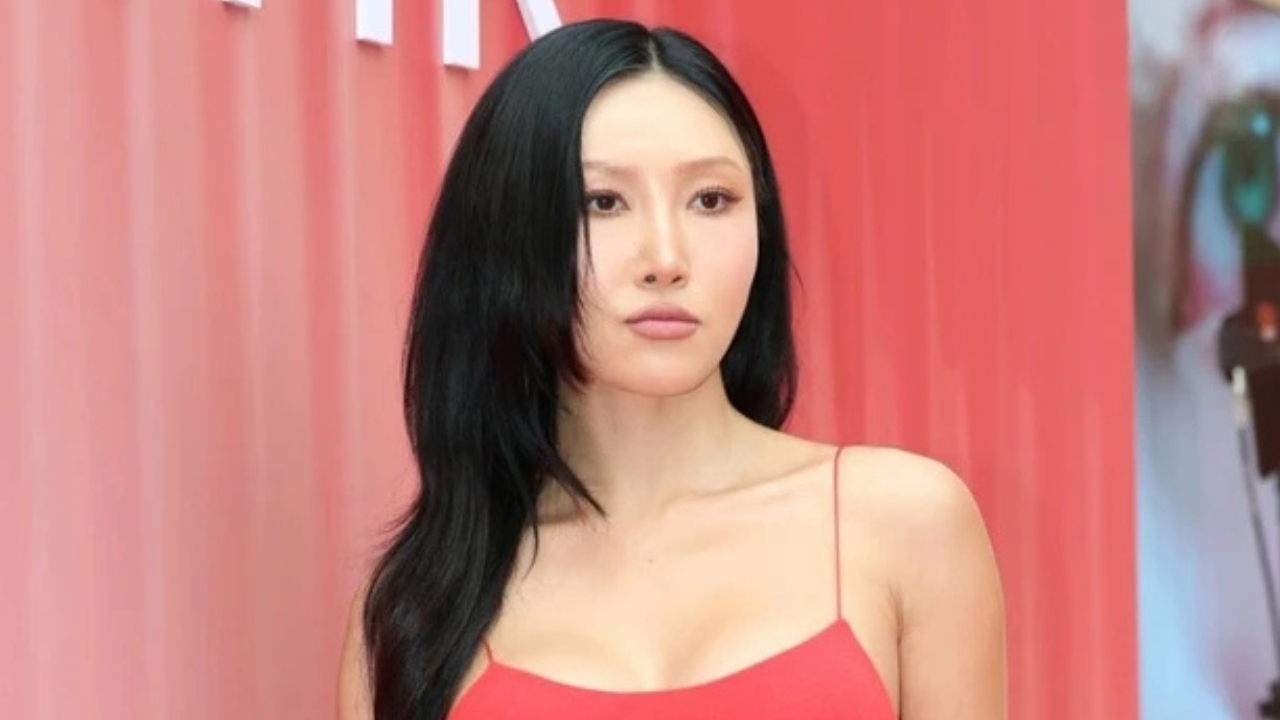On the July 13, 2025 episode of KBS2’s Crazy Rich Koreans, Hwasa, member of the globally popular K-pop group MAMAMOO, bared her soul in one of her most emotional public appearances to date.
The singer opened up about the psychological toll following the controversy surrounding her university performance in May 2023, revealing struggles with panic attacks, memory lapses, and a deep sense of emotional isolation.
Her candid words highlighted the rarely discussed but widely felt mental health struggles that many K-pop idols face behind the glamour and global fame.
Hwasa’s story not only struck a chord with fans but also reignited conversations around the mental wellbeing of celebrities in the entertainment industry, particularly in South Korea.
The May 2023 Indecency Controversy: A Turning Point
The storm began in May 2023, when Hwasa’s performance at a university festival drew criticism for being “too provocative.”
Though investigations by authorities found no legal wrongdoing, the backlash, fueled by online scrutiny and cultural conservatism, deeply affected the artist.
For most viewers, it may have appeared like just another celebrity scandal, quickly dismissed by headlines. But for Hwasa, the emotional aftermath was much more enduring.
As she revealed, this incident marked a turning point in her mental health, surfacing anxieties she hadn’t fully confronted before.
Panic Attacks and the Weight of Expectations
Hwasa spoke openly about how the controversy triggered panic symptoms during MAMAMOO’s U.S. tour, especially during a particularly distressing incident at a Turkish airport.
“I suddenly couldn’t breathe,” she recalled.

In that moment, her fellow members instinctively hugged her, a gesture of comfort that, she says, they might not even remember—but she will never forget.
She described her panic episodes as moments where everything becomes overwhelming—the pressure to perform, the constant judgment, the fear of disappointing people, and the sense of not being fully understood.
The image of Hwasa—a confident performer known for bold, fearless expressions—breaking down in tears backstage is a stark reminder of the hidden burdens many artists carry.
“Are You Okay, My Daughter?”: The Text That Broke Her
The emotional core of Hwasa’s confession centered around a simple but powerful text message from her mother:
“Are you okay, my daughter?”
Recalling the moment, Hwasa revealed that reading those words “broke her heart.” She admitted to feeling unseen and misunderstood, even as a child.
“If even you couldn’t understand me growing up, how could others?” she had asked her mother during one of their conversations.
Her mother responded with love:
“You’re my proud daughter.”
The exchange encapsulated the emotional isolation Hwasa often felt—not just as a celebrity, but as an individual navigating a world that often judges more than it seeks to understand.
The High Cost of Stardom: Memory Lapses and Mental Exhaustion
Another concerning revelation was Hwasa’s admission that she suffers from frequent memory lapses.
“I don’t remember well,” she said. “I think it’s because of the busy lifestyle.”
This forgetfulness is not just a quirk of overwork—it may be a symptom of chronic stress or burnout, conditions alarmingly common among K-pop idols who are expected to maintain grueling schedules, manage online backlash, and constantly present a polished public image.
Fans and mental health advocates pointed out that Hwasa’s memory loss may indicate something deeper—perhaps an early warning sign of psychological fatigue that could lead to more serious conditions if left unchecked.
A Broader Reflection on Mental Health in K-pop
Hwasa’s honesty comes at a time when the K-pop industry is grappling with its culture of perfection, and its impact on artists’ wellbeing.
Over the years, several idols have shared similar struggles—from depression and anxiety to the unbearable pressure of maintaining public personas.
While awareness is growing, there is still a lingering stigma around mental health in South Korea, especially within the high-stakes world of idol entertainment.
Hwasa’s vulnerability could help shift this narrative, reminding fans and agencies alike that mental health is just as important as talent and popularity.
Fans Rally With Support: “You’re Not Alone”
Following the broadcast, social media platforms lit up with messages of love and encouragement from fans around the world.
Hashtags like #WeLoveYouHwasa and #YouAreNotAlone trended globally, as people praised her courage for speaking out.
Fans emphasized that her emotional truth made her more relatable and inspiring, not less. One comment read,
“Hwasa, your strength is not in hiding your pain, but in sharing it.”
Another said,
“You’ve helped more people today than you can imagine.”
Looking Ahead: A Brighter, More Open Future?
Hwasa’s story, while painful, is also powerful. It is a reminder that no one—not even a superstar—is immune to emotional suffering.
But it also shows how healing can begin through connection, honesty, and compassion—whether it’s through a hug from a bandmate, a text from a parent, or the collective support of millions of fans.
As more K-pop idols step forward to share their personal struggles, the industry may finally start embracing the message that it’s okay to not be okay—and that behind every dazzling performance is a human being, worthy of care and understanding.
